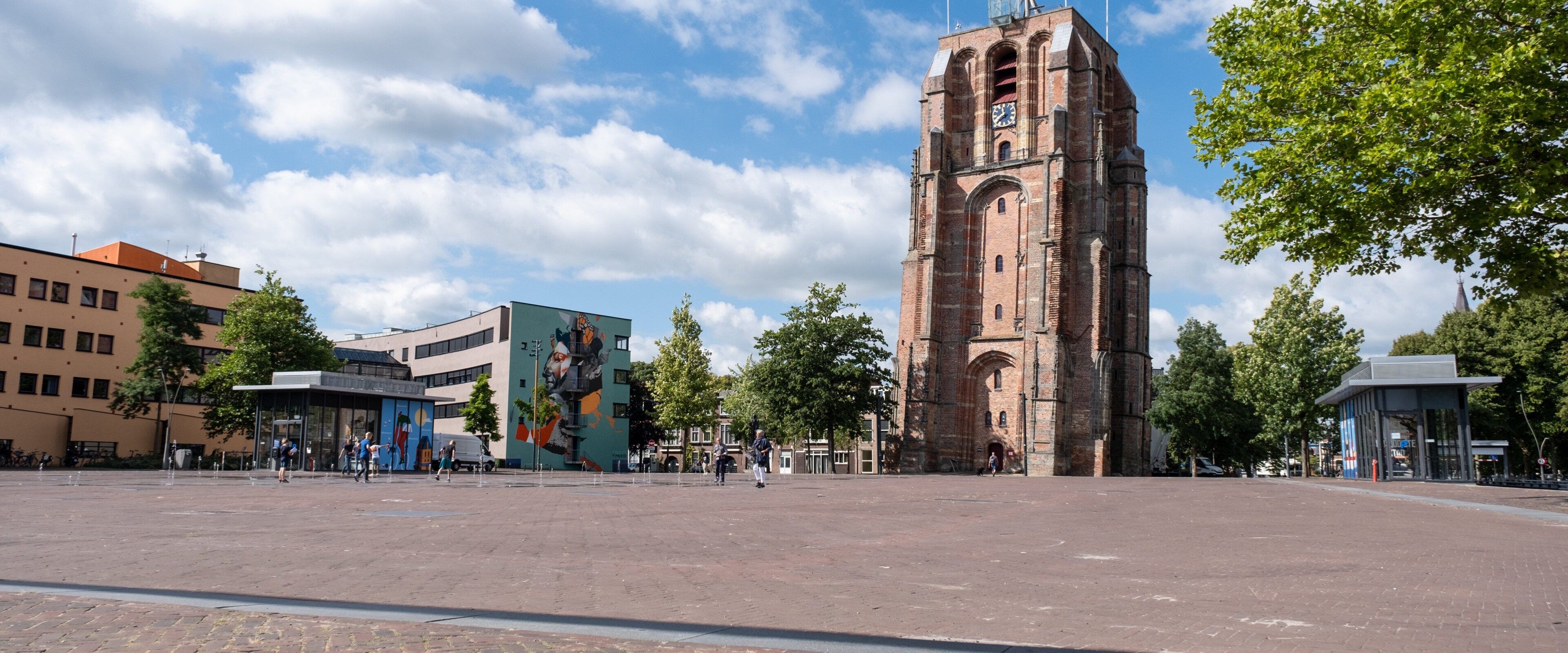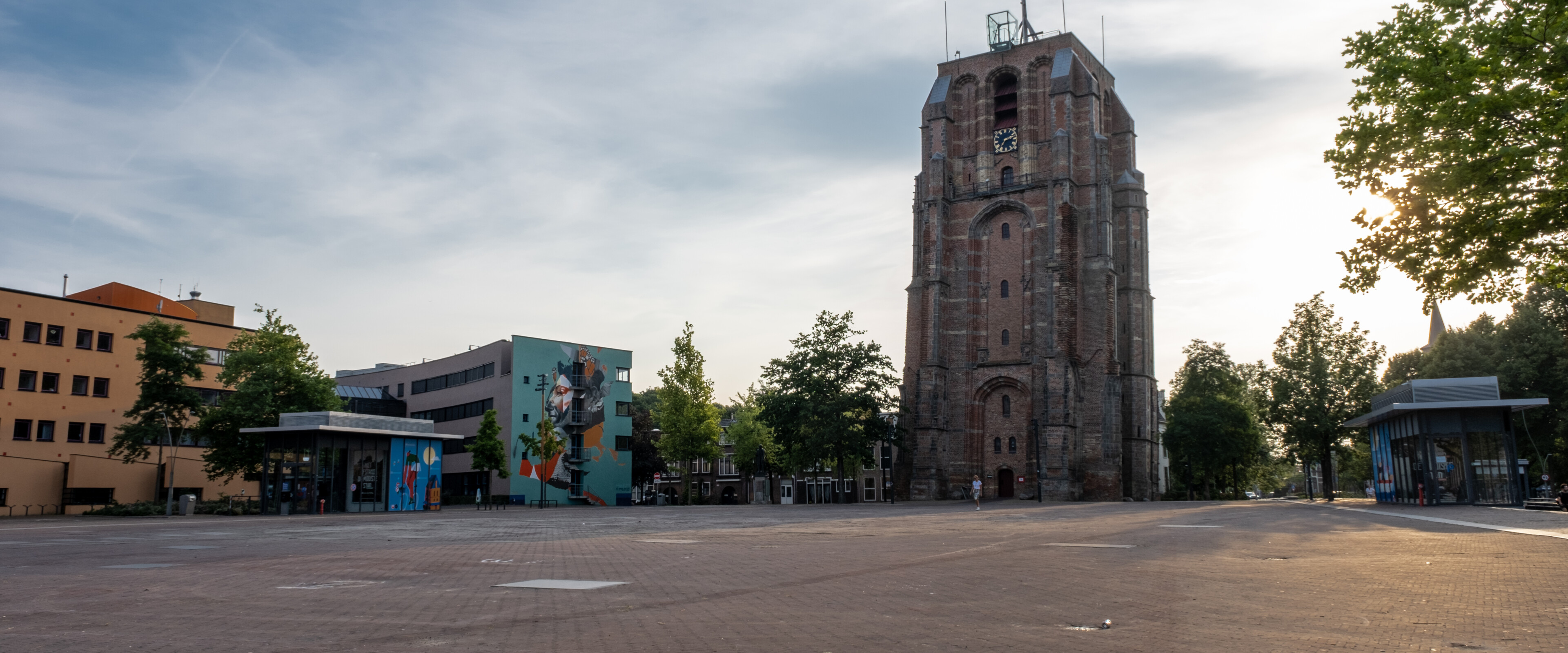Waste collection levy
For the collection and processing of household waste, you pay a waste collection levy to the City of Leeuwarden. How much you pay depends on how much and how often you hand in residual waste. You can influence the variable part of the waste collection levy by separating your waste. You pay less if you separate your waste properly and deposit less residual waste.
How the waste collection levy works
You will receive a local tax assessment from us if you use a ‘property’. A property is ‘residential’ or ‘non-residential’. A ‘non-residential property’ is, for example, a business, shop, office, garage box or a piece of land. The assessment states whether you have to pay for a ‘home’ and/or ‘non-residential property’. This is a fixed amount. In addition to the fixed amount, you also pay a variable amount. You will receive the assessment for the variable amount for last year.
Home
You pay the waste collection levy if you use a property. It makes no difference if you are the owner or tenant. For a home, you pay a fixed amount each year for rubbish collection and disposal. You also pay the levy if you do not deposit any waste or have it collected.
‘Non-residential property’
You do not pay the waste collection levy as a user of a non-residential property,. However, you must make sure that the commercial waste is collected.
Charge for one or more persons
The amount of the waste collection levy depends on the number of people living in your home. If you live alone, you pay the single person’s charge. If several people live in your home, you pay the multiple occupants charge.
Variable amount
The waste collection levy is divided into two parts. A fixed amount and an amount that varies for residual waste. We call this the variable amount. The amount of this amount can vary and depends on how often someone puts the grey container on the road and the weight of the waste in the container.
Anyone who uses an underground container pays each time the container is opened.
There is no charge for the separate collection of green, fruit and garden waste, textiles, paper and glass. These are raw materials that can be easily reused because they are collected separately.
Rate holiday home
For a holiday home you pay a low waste tax rate for 6 months of services. The waste tax assessment for a holiday home only consists of a fixed part. Every year from April 1 to October 1, you can use underground containers in the area with an environmental pass. Services with containers for residual, green or paper waste are not possible.
How much residual waste have you deposited?
Download the Omrin Waste app or go to The Digital Tax Office. Here you will see how often and how much waste you have deposited.
Charges
Calculate the waste collection levy
Use the calculator to quickly work out your waste collection levy.
Fixed charge for waste collection levy (residual waste rate) 2025
- Single person’s household: € 177.00.
- Multiple person household: € 266.04.
- Holiday home: € 132.72.
- An extra green container (organic waste) is free of charge.
Variable part of the waste collection charge (residual waste charge) 2025
- Amount per kilogram in the Sortibak container (grey container): € 0.20 per kilo.
- Amount per kilogram in the Sortibak container (grey container): 2024 rate: € 0.09 per kilo.
- Having your own Sortibak (grey container) emptied: € 1.00 each time.
- Bag in underground residual waste container: € 1.15 each time.
- Bag in the underground residual waste container rate 2024: € 0.67 per time.
You will receive the assessment for the variable part for 2024 in January or February 2025. The 2024 rate applies to this.
Do you have low income and few assets?
For example, because you have to make ends meet on welfare benefits, study grants or AOW (state pension) benefits? If so, you may be entitled to the waste collection charge remission. The remission applies to the fixed rate and you will receive a maximum remission of €98.80 on the variable rate.
How do you pay?
There are three ways of paying the levy:
- You authorise the local authority with a direct debit mandate.
- You apply for a payment schedule.
- You transfer the amount of the tax assessment to us:
- Account number: NL10BNGH0285100343
- In the name of: City of Leeuwarden
- Description: tax assessment number and subject number
Paying from abroad
When paying from abroad, use our BIC: BNGHNL2G. Place the tax assessment and subject number in the description. Please note that a payment from abroad may take longer.
Not in agreement with the waste levy assessment
You can object via the Digital Tax Office. You cannot object to the amount of the charge.
Waste coach
Do you need help with properly separating your waste? An Omrin waste coach can give you tips. You can make an appointment via afvalcoach@omrin.nl. You will find more information on what schemes and help are available on the page Waste and Recycling.
Laws and regulations
The following laws can be found on the website Overheid.nl (national):
- Environmental Management Act
The following regulations can be found on the website Overheid.nl (local):
- Leeuwarden Waste Levy Regulation
How the waste collection levy works
You will receive a local tax assessment from us if you use a ‘property’. A property is ‘residential’ or ‘non-residential’. A ‘non-residential property’ is, for example, a business, shop, office, garage box or a piece of land. The assessment states whether you have to pay for a ‘home’ and/or ‘non-residential property’. This is a fixed amount. In addition to the fixed amount, you also pay a variable amount. You will receive the assessment for the variable amount for last year.
Home
You pay the waste collection levy if you use a property. It makes no difference if you are the owner or tenant. For a home, you pay a fixed amount each year for rubbish collection and disposal. You also pay the levy if you do not deposit any waste or have it collected.
‘Non-residential property’
You do not pay the waste collection levy as a user of a non-residential property,. However, you must make sure that the commercial waste is collected.
Charge for one or more persons
The amount of the waste collection levy depends on the number of people living in your home. If you live alone, you pay the single person’s charge. If several people live in your home, you pay the multiple occupants charge.
Variable amount
The waste collection levy is divided into two parts. A fixed amount and an amount that varies for residual waste. We call this the variable amount. The amount of this amount can vary and depends on how often someone puts the grey container on the road and the weight of the waste in the container.
Anyone who uses an underground container pays each time the container is opened.
There is no charge for the separate collection of green, fruit and garden waste, textiles, paper and glass. These are raw materials that can be easily reused because they are collected separately.
Rate holiday home
For a holiday home you pay a low waste tax rate for 6 months of services. The waste tax assessment for a holiday home only consists of a fixed part. Every year from April 1 to October 1, you can use underground containers in the area with an environmental pass. Services with containers for residual, green or paper waste are not possible.
How much residual waste have you deposited?
Download the Omrin Waste app or go to The Digital Tax Office. Here you will see how often and how much waste you have deposited.
Charges
Calculate the waste collection levy
Use the calculator to quickly work out your waste collection levy.
Fixed charge for waste collection levy (residual waste rate) 2025
- Single person’s household: € 177.00.
- Multiple person household: € 266.04.
- Holiday home: € 132.72.
- An extra green container (organic waste) is free of charge.
Variable part of the waste collection charge (residual waste charge) 2025
- Amount per kilogram in the Sortibak container (grey container): € 0.20 per kilo.
- Amount per kilogram in the Sortibak container (grey container): 2024 rate: € 0.09 per kilo.
- Having your own Sortibak (grey container) emptied: € 1.00 each time.
- Bag in underground residual waste container: € 1.15 each time.
- Bag in the underground residual waste container rate 2024: € 0.67 per time.
You will receive the assessment for the variable part for 2024 in January or February 2025. The 2024 rate applies to this.
Do you have low income and few assets?
For example, because you have to make ends meet on welfare benefits, study grants or AOW (state pension) benefits? If so, you may be entitled to the waste collection charge remission. The remission applies to the fixed rate and you will receive a maximum remission of €98.80 on the variable rate.
How do you pay?
There are three ways of paying the levy:
- You authorise the local authority with a direct debit mandate.
- You apply for a payment schedule.
- You transfer the amount of the tax assessment to us:
- Account number: NL10BNGH0285100343
- In the name of: City of Leeuwarden
- Description: tax assessment number and subject number
Paying from abroad
When paying from abroad, use our BIC: BNGHNL2G. Place the tax assessment and subject number in the description. Please note that a payment from abroad may take longer.
Not in agreement with the waste levy assessment
You can object via the Digital Tax Office. You cannot object to the amount of the charge.
Waste coach
Do you need help with properly separating your waste? An Omrin waste coach can give you tips. You can make an appointment via afvalcoach@omrin.nl. You will find more information on what schemes and help are available on the page Waste and Recycling.
Laws and regulations
The following laws can be found on the website Overheid.nl (national):
- Environmental Management Act
The following regulations can be found on the website Overheid.nl (local):
- Leeuwarden Waste Levy Regulation


